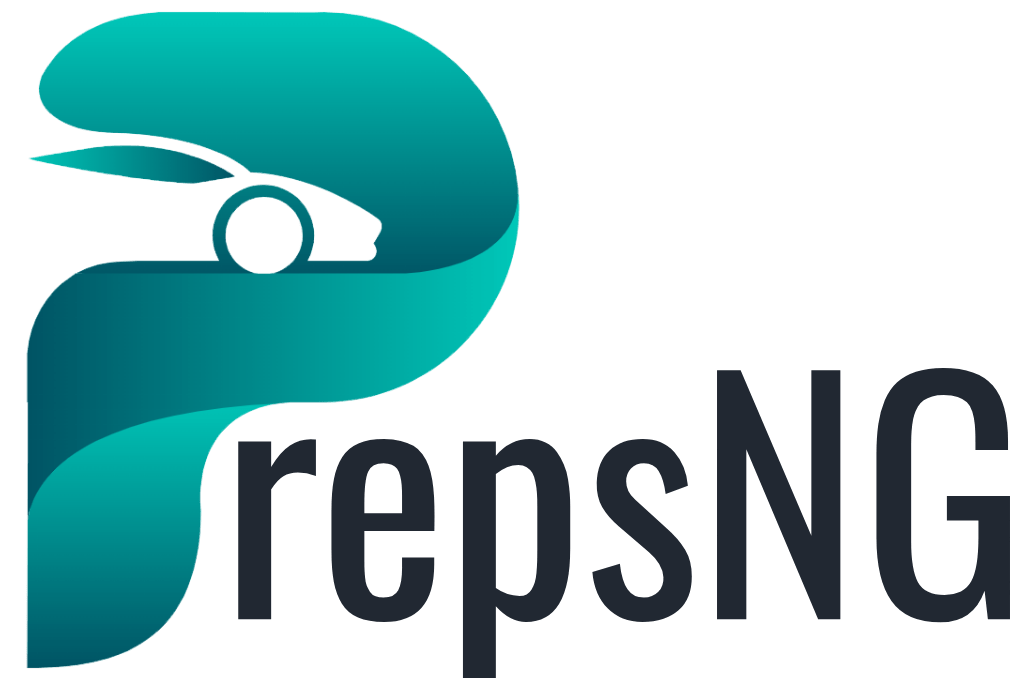Master’s and Postgraduate Requirements in Nigeria: Are you a Nigerian student who wants to advance your academic career and pursue a master’s degree or a Ph.D. in Nigeria? If yes, then you might be wondering what are the requirements, procedures, and benefits of doing so. In this article, we will provide you with all the information you need to know about pursuing a master’s degree or a Ph.D. in Nigeria, including:
- General Entry Qualifications for Postgraduate Programmes in Nigeria
- Specific Admission Requirements for Different Disciplines and Universities
- Duration, Structure, and Cost of Postgraduate Studies in Nigeria
- Advantages and Challenges of Pursuing a Master’s Degree or a Ph.D. in Nigeria
- Tips and Resources to Help You Succeed in Your Postgraduate Journey
- Wrapping Up
- The general entry qualifications for postgraduate programmes in Nigeria
- The specific admission requirements for different disciplines and universities
- The duration, structure, and cost of postgraduate studies in Nigeria
- The advantages and challenges of pursuing a master’s degree or a Ph.D. in Nigeria
- The tips and resources to help you succeed in your postgraduate journey
By the end of this article, you will have a clear understanding of how to pursue a master’s degree or a Ph.D. in Nigeria and what to expect from it. You will also be inspired and motivated to take the next step in your academic journey and achieve your goals.
General Entry Qualifications for Postgraduate Programmes in Nigeria
Gaining admission into postgraduate programmes in Nigeria requires meeting certain baseline qualifications stipulated by the National Universities Commission (NUC). Before examining the specific entry criteria for different disciplines and universities, it is vital to understand these broad requirements applicable to all postgraduate applicants.
Join any of our Social Media Pages to receive Latest Updates!The NUC outlines general entry qualifications for admission into postgraduate diploma (PGD), masters, and doctoral degree programmes in Nigeria. These are the minimum prerequisites you need to fulfil irrespective of your desired course of study or institution.
According to the NUC guidelines, the general requirements for postgraduate admission in Nigeria include:
Postgraduate Diploma (PGD)
The eligibility criteria to gain admission into postgraduate programs in Nigeria depends on the specific degree type and awarding institution. However, there are some general requirements:
Postgraduate Diploma (PGD) Admission Requirements:
- Minimum of a bachelor’s degree from an accredited university with at least a 3rd class grade.
- Higher National Diploma (HND) with a minimum of upper credit from an approved polytechnic.
- Professional qualifications like ACA, ACMA, CPA, ICAN etc. acceptable to the university.
- Other qualifications approved by the university senate.
- Some PGDs may require additional credits, exam scores, or work experience. Candidates should verify requirements.
Master’s Degree Admission Requirements:
- Minimum of a bachelor’s degree with at least a 2nd class upper division or its equivalent.
- PGD with at least a credit pass or equivalent National Certificate of Education (NCE).
- At least 50% score in an unclassified bachelor’s degree.
- Professional qualifications approved by the university.
- Some master’s may require additional exam, O’level credits, interview etc.
Doctor of Philosophy (PhD) Admission Requirements:
- Minimum of a master’s degree from an accredited university with at least 60% score.
- A master’s degree with minimum 50% score may require remedial bridging courses.
- Other qualifications acceptable to the university senate.
- Some PhDs may require extra O’level credits, research proposal submission, etc.
The minimum requirement is a bachelor’s degree for PGD, a PGD or bachelor’s degree for master’s, and a master’s degree for PhDs. Candidates should however check specific requirements for their desired program and institution. Relevant educational and professional qualifications are crucial.
Join any of our Social Media Pages to receive Latest Updates!Specific Admission Requirements for Different Disciplines and Universities
Now that you know the general entry qualifications for postgraduate programmes in Nigeria, you might be wondering what are the specific admission requirements for different disciplines and universities. This is because each discipline and university may have its own criteria and standards for admitting postgraduate students. Therefore, it is important to check the specific admission requirements for the discipline and university that you are interested in before you apply.
To help you with this, we have compiled some examples of the specific admission requirements for different disciplines and universities in Nigeria. These are based on the information available on the official websites of the universities as of Mar 2026. However, please note that these are only examples and not exhaustive lists. Therefore, you should always verify the latest and accurate information from the official sources of the universities that you are interested in.
University of Nigeria, Nsukka (UNN)
The University of Nigeria, Nsukka (UNN) is one of the oldest and most prestigious universities in Nigeria. It offers a wide range of postgraduate programmes in various disciplines. According to its official website, some of the specific admission requirements for different disciplines at UNN are as follows:
- For PGD in Architecture, Geoinformatics and Surveying, candidates with third class honours degrees in their respective disciplines are also eligible.
- For PGD in Civil Engineering, Mechanical Engineering, and Architecture, only candidates with university degrees in relevant areas need apply.
- For M.Ed degree, candidates with at least a good second class single honours degree in teaching subjects plus at least a merit level pass at PGD in Education, or those who hold a third class honours degree in Education or a single honours degree in teaching subjects with at least five years postgraduate teaching experience, plus PGD in Education passed at merit level or above are eligible.
- For MPA, candidates should be serving administrative/managerial staff in the public or private sector with a minimum of two years post-qualification cognate experience.
- For Ph.D., candidates must have obtained a master’s degree from UNN or other recognized universities with an average score of 60% or above.
University of Ibadan (UI)
The University of Ibadan (UI) is another one of the oldest and most prestigious universities in Nigeria. It also offers a wide range of postgraduate programmes in various disciplines. According to its official website, some of the specific admission requirements for different disciplines at UI are as follows:
- For PGD in Education, candidates must possess a first degree from UI or other recognized universities with a minimum score of 50% or above.
- For M.Sc. in Computer Science, candidates must possess a first degree in Computer Science or related disciplines from UI or other recognized universities with a minimum score of 55% or above.
- For M.A. in History, candidates must possess a first degree in History or related disciplines from UI or other recognized universities with a minimum score of 50% or above.
- For M.Sc. in Psychology, candidates must possess a first degree in Psychology or related disciplines from UI or other recognized universities with a minimum score of 55% or above.
- For Ph.D., candidates must have obtained a master’s degree from UI or other recognized universities with an average score of 60% or above.
University of Lagos (UNILAG)
The University of Lagos (UNILAG) is one of the most popular and competitive universities in Nigeria. It also offers a wide range of postgraduate programmes in various disciplines. According to its official website, some of the specific admission requirements for different disciplines at UNILAG are as follows:
- For PGD in Mass Communication, candidates must possess a first degree from UNILAG or other recognized universities with a minimum score of 50% or above.
- For M.Sc. in Accounting, candidates must possess a first degree in Accounting or related disciplines from UNILAG or other recognized universities with a minimum score of 55% or above.
- For M.A. in English Language, candidates must possess a first degree in English Language or related disciplines from UNILAG or other recognized universities with a minimum score of 50% or above.
- For M.Sc. in Chemistry, candidates must possess a first degree in Chemistry or related disciplines from UNILAG or other recognized universities with a minimum score of 55% or above.
- For Ph.D., candidates must have obtained a master’s degree from UNILAG or other recognized universities with an average score of 60% or above.
Duration, Structure, and Cost of Postgraduate Studies in Nigeria
Join any of our Social Media Pages to receive Latest Updates!Another aspect that you might be curious about is the duration, structure, and cost of postgraduate studies in Nigeria. This is because these factors may affect your decision to pursue a master’s degree or a Ph.D. in Nigeria. Therefore, we will provide
you with an overview of the duration, structure, and cost of postgraduate studies in Nigeria. However, please note that these factors may vary depending on the discipline and the university. Therefore, you should always check the specific details from the official sources of the universities that you are interested in.
Duration of Postgraduate Studies in Nigeria
The duration of postgraduate studies in Nigeria varies depending on the program type, level, and mode of study. Typically, postgraduate programs take the following number of academic years:
Postgraduate Diploma (PGD)
- 1 year for full-time students
- 2 years for part-time students
This consists of 2 semesters (full-time) or 4 semesters (part-time).
Master’s Degree Programs
- 1.5 – 2 years for full-time students
- 2 – 3 years for part-time students
This comprises 3 to 4 semesters (full-time) or 4 to 6 semesters (part-time).
Doctor of Philosophy (PhD)
- 3 – 5 years for full-time students
- 4 – 6 years for part-time students
The duration ranges from 6 to 10 semesters (full-time) or 8 to 12 semesters (part-time).
Some programs may have slightly shorter or longer durations depending on the academic discipline and policies of the specific university. For instance, certain engineering and medical sciences master’s degrees may take up to 3 years full-time, while select humanities and social sciences PhDs could take up to 6 years full-time.
The key factors determining the length of postgraduate study in Nigeria are the degree type, study mode (full-time or part-time), and the university’s requirements for the program. Students should confirm the exact duration from their preferred university before applying.
Structure of Postgraduate Studies in Nigeria
The structure of postgraduate programs in Nigeria varies by degree type, level, academic discipline, and university. But in general, postgraduate studies consist of the following components:
Postgraduate Diploma (PGD)
- Coursework: Core and elective courses covering basic and advanced knowledge and skills.
- Project: Research-based or practical project demonstrating application of acquired knowledge.
Master’s Degree
- Coursework: Advanced and specialized courses in the discipline.
- Thesis/Dissertation: Research or practical project contributing new knowledge or practices.
- Additional: Some programs require qualifying exams or oral defense.
Doctor of Philosophy (PhD)
- Coursework: Highly advanced and specialized courses.
- Dissertation: Original research-based project adding significant new knowledge.
- Additional: Some programs require qualifying exams or proposal defense.
While most postgraduate programs contain a coursework and research/project component, the specific structure varies across universities and disciplines. For instance:
- Some master’s degrees mandate comprehensive exams before the thesis/dissertation.
- Certain PhDs require a qualifying exam or proposal defense before the dissertation.
- Professional postgraduate programs may emphasize more coursework than research.
In summary, Nigeria’s postgraduate study structure involves a combination of advanced courses and intensive research/practical work, with additional requirements dependent on the institution and field of study. Students should consult their specific university to understand the program structure.
Cost of Postgraduate Studies in Nigeria
The cost of pursuing postgraduate studies in Nigeria depends primarily on the program type, level, academic discipline, and university.
There are two main cost components:
Tuition Fees:
Tuition fees cover the instruction and supervision provided by the university. Rates vary by institution and degree program.
For example, the approximate tuition per academic session is:
- PGD: ₦75,000 – ₦150,000 at UNN; ₦50,000 – ₦100,000 at UI; ₦75,000 – ₦150,000 at UNILAG
- Master’s: ₦100,000 – ₦200,000 at UNN; ₦75,000 – ₦150,000 at UI; ₦100,000 – ₦200,000 at UNILAG
- PhD: ₦150,000 – ₦300,000 at UNN; ₦100,000 – ₦200,000 at UI; ₦150,000 – ₦300,000 at UNILAG
Other Fees:
Other fees cover university services and facilities for students like acceptance, exams, medical, sports, ID card, library, convocation, etc. They also vary by school.
For example, some other fees are:
- PGD: ₦25,000 acceptance fee; ₦15,000 development levy; ₦10,000 project fee at UNN
- Master’s: ₦25,000 acceptance fee; ₦10,000 thesis fee; ₦10,000 convocation fee at UI
- PhD: ₦25,000 acceptance fee; ₦20,000 dissertation fee; ₦20,000 convocation fee at UNILAG
In summary, postgraduate costs in Nigeria include variable tuition fees, university levies, and program-specific charges. Total expenses differ by degree type, university, and subject area. Students should verify precise fees directly from their desired institution’s official channels.
Advantages and Challenges of Pursuing a Master’s Degree or a Ph.D. in Nigeria
Pursuing postgraduate studies like a master’s degree or PhD in Nigeria has both advantages and challenges worth considering.
Potential benefits of postgraduate study in Nigeria include:
- Gaining advanced specialized knowledge and skills to become highly competent in your discipline
- Contributing new research and innovations that advance your field and benefit society
- Expanding your professional network and opportunities for career growth
- Enhancing your employability and income prospects by obtaining higher qualifications
- Fulfilling your intellectual passions and interests through rigorous study
However, some notable challenges to undertaking postgraduate study in Nigeria exist:
- Securing admission into competitive programs can be difficult due to limited slots
- Funding and scholarships are limited, making self-financing a challenge
- Some universities have inadequate facilities and resources to support research
- Frequent strikes and disruptions can delay timely completion of programs
- Heavy study workload and pressure can be difficult to balance with other responsibilities
However, while postgraduate study in Nigeria enables you to gain advanced expertise and skills, the process also requires tremendous commitment and perseverance to overcome challenges like securing admission, funding, strikes and workload pressure.
Carefully assess both the pros and cons before deciding if furthering your education through a master’s or PhD program in Nigeria is suitable for your goals and circumstances. Consult seniors, mentors and professors to gain further insights.
Tips and Resources to Help You Succeed in Your Postgraduate Journey
Pursuing a master’s degree or a Ph.D. in Nigeria is not an easy task. It requires a lot of dedication, hard work, and resilience. Therefore, you need to prepare yourself well and equip yourself with the necessary tips and resources to help you succeed in your postgraduate journey. Here are some tips and resources that we recommend:
- Choose a programme and a university that suit your interest, aptitude, and goals. Do thorough research on the available options and compare them based on their admission requirements, duration, structure, cost, reputation, ranking, accreditation, facilities, resources, faculty, curriculum, etc.
- Apply early and follow the application procedures carefully. Make sure you meet the general and specific admission requirements for your chosen programme and university. Submit all the required documents and fees on time. Prepare well for any entrance examination or interview if required.
- Seek financial assistance or scholarship if needed. Explore the various sources of funding or scholarship that are available for postgraduate students in Nigeria. These include government agencies such as TETFund (Tertiary Education Trust Fund) and PTDF (Petroleum Technology Development Fund), private organizations such as Shell (Shell Petroleum Development Company) and Chevron (Chevron Nigeria Limited), international organizations such as Commonwealth (Commonwealth Scholarship Commission) and Fulbright (Fulbright Program), etc.
- Plan your time and manage your workload effectively. Set realistic goals and deadlines for your postgraduate studies. Break down your tasks into manageable chunks. Prioritize your tasks according to their importance and urgency. Allocate sufficient time for each task. Avoid procrastination and distractions. Seek help when needed.
- Engage with your postgraduate community and supervisor. Seek feedback and guidance from your peers and mentors in your field. Participate in academic activities and events such as seminars, workshops, conferences, etc. Collaborate and network with other scholars and professionals in your field.
- Seek personal and professional support and development. Take care of your physical and mental health and well-being. Balance your postgraduate studies with your personal and professional life. Seek help from your family, friends, colleagues, counselors, etc. when you face any challenges or difficulties. Pursue your hobbies and interests that can enrich your life. Seek opportunities to enhance your skills and competencies that can benefit your career.
- Stay motivated and focused on your goals. Remind yourself of the reasons why you chose to pursue a master’s degree or a Ph.D. in Nigeria. Celebrate your achievements and milestones along the way. Learn from your failures and setbacks. Overcome the obstacles and challenges that you encounter. Keep track of your progress and adjust your plans accordingly. Be flexible and adaptable to the changing circumstances.
Wrapping Up
In summary, this comprehensive guide has equipped you with extensive insights on pursuing postgraduate studies in Nigeria including:
- Admission requirements for different programs and universities
- Typical duration, structure and costs involved
- The advantages of advancing your expertise and employability
- Challenges like funding, facilities and disruptions
- Useful tips and resources to aid your success
I hope this detailed article has provided clarity on what is involved in undertaking a master’s degree or PhD in Nigeria. You should now have sufficient knowledge to make an informed decision based on your academic and career goals, financial situation and personal circumstances.
The next step is to thoroughly research your intended institutions and programs, fulfill the admission criteria decisively, and boldly pursue your postgraduate aspirations in Nigeria. I wish you all the best in furthering your education and taking your career to the next level!
I hope this post has answered all your queries. If you have any questions or comments about Master’s and Postgraduate Requirements in Nigeria: What You Should Know Before You Apply, please feel free to leave them in the comments section below, I will be happy to answer them. And don’t hesitate to share it with others who might find it helpful too!!



![FULOKOJA Diploma Admission Form [year]/[nyear]: How to Apply, Requirements and Deadline 2 FULOKOJA Diploma Admission Form](https://www.preps.ng/wp-content/uploads/2024/03/FULOKOJA-Diploma-Admission-Form-150x150.jpg)
![UNIOSUN Cut Off Marks for [year]/[nyear]: Everything You Need to Know 3 UNIOSUN Cut Off Marks](https://www.preps.ng/wp-content/uploads/2024/02/UNIOSUN-Cut-Off-Marks-150x150.jpg)

![How to Check WAEC Result in [year] | Step-by-Step Guide 7 How to Check WAEC Result](https://www.preps.ng/wp-content/uploads/2023/08/How-to-Check-WAEC-Result-330x220.webp)
![FULOKOJA Registration, Clearance & Medical Guidelines for Newly Admitted Students [year]/[nyear] 9 FULOKOJA Registration, Clearance & Medical Guidelines for Newly Admitted Students](https://www.preps.ng/wp-content/uploads/2024/03/FULOKOJA-Registration-Clearance-Medical-Guidelines-for-Newly-Admitted-Students-330x220.jpg)

![Redeemer's University Dress Code and Approved Items for Fresh Students - [year]/[nyear] Guide 13 Redeemer's University Dress Code and Approved Items for Fresh Students](https://www.preps.ng/wp-content/uploads/2023/09/Redeemers-University-Dress-Code-and-Approved-Items-for-Fresh-Students-330x220.webp)

![YABATECH Registration Procedure for Newly Admitted Students [year] 17 YABATECH Registration Procedure for Newly Admitted Students](https://www.preps.ng/wp-content/uploads/2024/02/YABATECH-Registration-Procedure-for-Newly-Admitted-Students-330x220.jpg)
![University of Ibadan Course Registration Guidelines for [year]/[nyear] Session 19 University of Ibadan Course Registration Guidelines](https://www.preps.ng/wp-content/uploads/2023/09/University-of-Ibadan-Course-Registration-Guidelines-330x220.webp)


